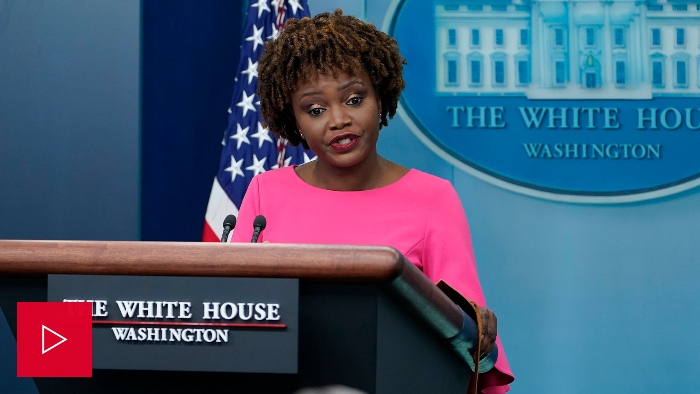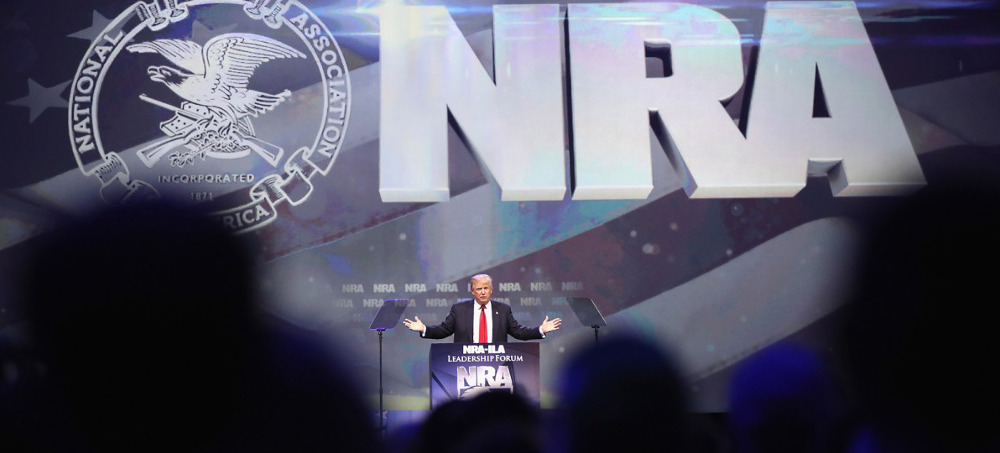| | |  | BY MYAH WARD | | With help from David Siders
| 
A man places his hand on a cross bearing the names of the victims of a mass shooting in front of Robb Elementary School in Uvalde, Texas. | Jordan Vonderhaar/Getty Images | UP IN THE AIR — In the late 1960s and early 1970s, there were as many as dozens of plane hijackings a year, and no one was doing anything about it. Airport security didn’t exist. No one checked your bag. There were no metal detectors or ID checks. Sometimes you could even buy your ticket on the flight. Brendan Koerner, the author of “The Skies Belong to Us,” calls the years between 1961 and 1972 the “golden age of hijackings.” They were accepted as a fact of life, something that came along with having airplanes. Sound familiar? Nightly talked to Koerner about what gun control advocates could learn from the end of hijackings in the ’70s. This conversation has been edited. Many people see a throughline between your book and the mass shootings of today. I was extremely conscious of that comparison while writing the book. Every time there would be a cluster of these hijackings, people would get a little freaked out. The airlines would basically shrug and say: “Well, you know, we can’t really do anything, because the only way we can do something is to institute extremely invasive security that will make the flying experience miserable for everyone, and everyone will complain about the infringement of their civil liberties. It’s just not doable.” Time and again, there were multiple congressional hearings about this. Airline lobbyists and even people who worked at the FAA would come and testify and say, “Well, you know, we know this is a problem, but security is not a viable solution, because it’s going to make air travel impossible.” Clearly there was a lot of financial self-interest in this stance. The airlines did a cost-benefit calculation. They ran the numbers and they basically decided, let’s just give in to everything that hijackers want. As long as we make sure that the passengers are safe and that they will get the airplane back, the cost of putting up with 25 to 30 hijackings a year is going to be far less than instituting security. Did Americans feel a sense of hopelessness similar to today, that nothing was going to change? Well, they’re slightly different phenomena. The hijackings were less violent than shootings. But there was a general feeling for a lot of that 11-year period that, well, this is just the price that we have to pay for the freedom of being able to fly places. What changed this thinking? The epidemic of hijackings became more dangerous and more egregious. Specifically, in 1972, there were a lot of hijackings that were really crazy by people who demanded money. They became progressively more violent. You had shootouts on planes. You had passengers dying. And ultimately, in November 1972, there was a hijacking of Southern Airways Flight 49. The hijackers of that plane said unless they were paid $10 million, they were going to crash the plane into the uranium reactor at Oak Ridge National Laboratory in Tennessee. Obviously, that was averted, but that was really the moment when the airlines realized that their planes could be used as weapons of mass destruction, and that would be incredibly bad for business — the liability issues and the trust issues. That’s really the moment when they dropped their resistance to these calls for universal screening. It was Jan. 5, 1973 — you had the advent of universal security screening in American airports. Everyone had to have their bag checked and go through a magnetometer. And pretty much right away, hijackings dropped to zero in America. Why, in your view, hasn’t there been a similar breakthrough for the gun reform movement? The airlines viewed liability as a serious problem for them, which is why they eventually dropped the resistance. I don’t think gun makers and the gun lobby feel that way. They’re not under threat of losing a massive lawsuit. What ultimately forced the hands of the airlines may not exist in the same way for gun makers because of all they’ve invested in lobbying and purchasing political power to protect themselves from liability issues. For airlines, it was a threat of financial consequences for letting hijackings continue. The threat of we’re going to be sued, we’re going to be on the hook if someone crashes a plane. It’s really about the financial incentives. What could gun control advocates learn from your research on the hijackings of the 1970s? I went back in the book, and I dove specifically into the congressional hearings. You have a senator telling the head of the FAA, “Maybe we should have metal detectors.” The FAA said: “No, there’ll be a line around the block. No one will get on their plane on time. It’s going to destroy the aviation industry.” You can argue that aviation security saved the aviation industry, because people were starting to lose trust in it and its abject refusal to do anything about this increasingly serious, deadly problem. We’ve proven in another crisis — not as bloody as this one, but in another serious public safety crisis in the U.S. — that when push comes to shove and we did the thing that everyone had been talking about for years, it bore fruit in a major way. Welcome to POLITICO Nightly. Programming Note: We’ll be off this Monday for Memorial Day. But fear not, we will be back in your inboxes on Tuesday, May 31. Reach out with news, tips and ideas at nightly@politico.com. Or contact tonight’s author at mward@politico.com, or on Twitter at @MyahWard.
| |
| | A message from Bank of America: The transformation to a net-zero-emissions economy may be ambitious, but it is not impossible. By 2030, global investments in renewable energies must triple to $4 trillion per year. Bank of America is powering that change with massive investments to address challenges facing the environment and other contributing factors of social inequities. | | | | | | 
Georgia Gov. Brian Kemp greets people during a primary night election party at the Chick-fil-A College Football Hall of Fame in Atlanta. | Joe Raedle/Getty Images | ENDORSING TRUMP > TRUMP ENDORSEMENTS — National political correspondent David Siders emails Nightly: For as much as Washington fixates on Donald Trump’s win-loss record in the midterms, including his faceplant in Georgia this week, the more important indicator of Trump’s influence on the party is not how his endorsed candidates are faring, but how many Republicans in primaries this year are still endorsing him. The answer is virtually everyone. Even the Republicans who have beat him are loath to pick a fight. That includes Brian Kemp and Brad Raffensperger, the Georgia governor and secretary of state who were mauled by Trump for resisting his effort to overturn the 2020 election results. Kemp, who walloped Trump’s stand-in, former Sen. David Perdue, on Tuesday, would say during the campaign thathe “never said a bad word” about Trump. Raffensperger, the more surprising primary winner, told reporters his victory was not a rebuke of Trump, but “a direct compliment to the goodness of my fellow Georgians.” Throughout this year’s early primaries, said Sarah Longwell, the moderate Republican strategist who became a vocal supporter of Joe Biden in 2020, there’ve been “a lot of people with their magnifying glasses out” in an effort to decipher any change in Trump’s grip on the GOP. “I think that is missing the forest for the trees,” she said. “This entire field [of Republicans] has lurched 10 steps Trump-ward.” Even so, one important part of Trumpism — the lie that the 2020 election was stolen — may be starting to recede, at least as a voting issue. Large majorities of Republicans still believe, falsely, that the 2020 election was rigged. But earlier this month, Nebraska Republicans re-nominated a secretary of state whopresented state lawmakers with a PowerPoint refuting Trump’s bogus election claims. And then there was Pennsylvania, where Trump is testing whether he can export his Big Lie about the 2020 presidential race to a midterm campaign, suggesting that a U.S. Senate primary might be rigged. That race, between Mehmet Oz and David McCormick, isheaded to a recount. But unlike in 2021, Trumpers aren’t storming the Capitol. In the grand scheme of Trumpism, that’s a small thing, and Republicans may be up in arms again in November, when it’s Republicans versus Democrats, not Republican-on-Republican primaries. But for pro-democracy Republicans, there’s now a glimmer of hope that even if Trump still commands the GOP, the obsession with the 2020 election may eventually fade. “If you’re an establishment Republican, you like him saying that [the Pennsylvania election may be rigged],” said Sean Walsh, a Republican strategist who worked in the Reagan and George H.W. Bush White Houses. “It’s the boy who cried wolf, right?” Eventually, he added, perhaps when it comes to “rigged” elections, people “won’t listen to him anymore.”
| |
| | DON'T MISS DIGITAL FUTURE DAILY - OUR TECHNOLOGY NEWSLETTER, RE-IMAGINED: Technology is always evolving, and our new tech-obsessed newsletter is too! Digital Future Daily unlocks the most important stories determining the future of technology, from Washington to Silicon Valley and innovation power centers around the world. Readers get an in-depth look at how the next wave of tech will reshape civic and political life, including activism, fundraising, lobbying and legislating. Go inside the minds of the biggest tech players, policymakers and regulators to learn how their decisions affect our lives. Don't miss out, subscribe today. | | | | | | | | 
| — Biden, first lady to travel to Uvalde on Sunday to grieve with victims' families: Biden and the first lady are scheduled to travel to Uvalde, Texas, on Sunday, the White House said, to “grieve with the community” after a gunman killed 19 children and two adults at an elementary school this week. The president will meet with community leaders, religious leaders and victims’ families over the weekend, White House press secretary Karine Jean-Pierre said during today’s briefing. — Bipartisan Senate group starts discussing path forward on guns: A group of senators met today in a Capitol basement office as lawmakers try to figure out if there’s a path forward on legislation in the wake of two high-profile mass shootings in as many weeks . Senators cautioned that the meeting was largely getting themselves organized before leaving town for a one-week recess. Background checks and red flag laws — which allow law enforcement to confiscate guns if an individual is a threat to himself or others — are the two main areas. They are also discussing school safety. — Senate GOP blocks domestic terrorism bill: Senate Republicans blocked legislation intended to combat domestic terrorism . And they’re all over the place on whether homegrown extremism even needs more federal attention. In the wake of a recent racist shooting in Buffalo, N.Y., Senate Majority Leader Chuck Schumer scheduled a vote on House-passed legislation that would set up offices at the Justice Department, the FBI and the Department of Homeland Security to focus on domestic terrorism. The procedural vote on the measure failed to reach the required 60 votes on Thursday, as the GOP widely views the legislation as unnecessary and an attempt by Democrats to politicize the killing of 10 people, mostly Black. — Trump ordered to sit for questioning in New York civil probe: Trump will have to sit for a deposition under oath in a New York state civil investigation of his business dealings , a state appeals court ruled today. The court denied Trump’s appeal to overturn a Feb. 17 ruling enforcing subpoenas for the former president and his two eldest children in the New York attorney general’s probe of the Trump Organization. New York Attorney General Letitia James alleges in the investigation that Trump misstated the values of assets in financial statements. — CMS turning attention to hospitals with Covid outbreaks: The Centers for Medicare and Medicaid Services is probing hospitals where a high rate of patients have gotten Covid-19 infections after cases spiked to record highs this year. Jon Blum, the agency’s principal deputy administrator and chief operating officer, told POLITICO that the regulator is focusing on facilities with Covid outbreaks, taking into account patient and health workers’ safety complaints, a change from the agency’s “less rigorous” process early in the pandemic. — Trump hits back at Kellyanne Conway for admitting that he lost in 2020: Trump is denying a key anecdote in a former aide’s new book, saying he would have banished Conway from his inner circle if she had ever told him he lost the 2020 presidential election. In a post this morning on his social media network, Truth Social, Trump refuted Conway’s assertion that she “may have been the first person Donald Trump trusted in his inner circle who told him that he had come up short this time.” — Biden’ s advocate for taxing the rich to leave White House: One of the Biden administration’s most outspoken proponents for taxing the rich to finance the president’s economic agenda is leaving the administration at the end of the week. David Kamin, a former Obama administration tax and budget official, joined the National Economic Council as deputy director at the start of Biden’s presidency and before that served on the campaign’s transition team. His last day is Friday.
| |
| | A message from Bank of America:  
| | | | | ‘MOST SERIOUS LONG-TERM’ THREAT — Secretary of State Antony Blinken today outlined competing visions for the future of the international community: one centered around China’s increasingly aggressive and expansive authoritarian one-party state, and another anchored by Biden’s conception of a bulwark of allies and partners committed to democracy, human rights and the “international rules-based order,” Quint Forgey and Phelim Kine write. The Biden administration, Blinken said, has spent its first year in office working to ensure the latter. In an address at the George Washington University, he argued that Washington “has developed and implemented a comprehensive strategy” toward Beijing “to harness our national strengths and our unmatched network of allies and partners to realize the future that we seek.” “China is the only country with both the intent to reshape the international order and, increasingly, the economic, diplomatic, military and technological power to do it,” Blinken said. “Beijing’s vision would move us away from the universal values that have sustained so much of the world’s progress over the past 75 years.” Blinken — who was previously scheduled to deliver his remarks on May 5, but was forced to postpone after testing positive for Covid-19 the previous day — went on to insist that the United States is not “looking for conflict or a new Cold War. To the contrary, we’re determined to avoid both.”
| |
| | STEP INSIDE THE WEST WING: What's really happening in West Wing offices? Find out who's up, who's down, and who really has the president’s ear in our West Wing Playbook newsletter, the insider's guide to the Biden White House and Cabinet. For buzzy nuggets and details that you won't find anywhere else, subscribe today. | | | | | | | | |
| | | | 
V, Suga, Jin, Jungkook, RM, Jimin and J-Hope of BTS attend the 64th Annual GRAMMY Awards at MGM Grand Garden Arena in Las Vegas. | Amy Sussman/Getty Images | ‘PERMISSION TO DANCE’ (IN THE WHITE HOUSE) — Biden will welcome BTS, the South Korean boy band and K-pop group, to the White House next week to “discuss Asian inclusion and representation,” as well as to “address anti-Asian hate crimes and discrimination,” Quint writes. Biden and BTS “will also discuss the importance of diversity and inclusion and BTS’ platform as youth ambassadors who spread a message of hope and positivity across the world,” the White House said in a statement. The visit by BTS, scheduled to take place on May 31, will come at the conclusion of Asian American, Native Hawaiian and Pacific Islander Heritage Month. The group’s appearance alongside Biden will be the latest event orchestrated by the White House to mark month-long celebration.
| |
| | A message from Bank of America: As the business community races to reduce its carbon emissions, enormous amounts of capital will be required to retool assembly lines, retrain workers and reimagine how the global economy operates.
“The capital needed to transition to a net zero economy is available,” says Karen Fang, Global Head of Sustainable Finance at Bank of America. “And the private sector is capable of organizing and deploying it at scale.”
Bank of America, for example, deployed $250 billion to environmental finance efforts in 2021 alone, part of an overall $1.5 trillion sustainable finance commitment through 2050.
Read more about why the private sector will be essential in innovating solutions to new environmental and social challenges. | | | Did someone forward this email to you? Sign up here. | |
|
| | Follow us on Twitter | | | FOLLOW US | | |
| |

















